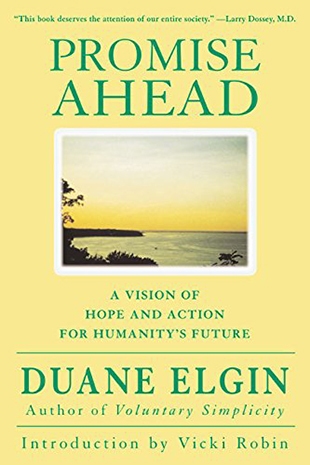"Modern industrial civilization," according to Duane Elgin, author of Voluntary Simplicity and former senior social scientist at SRI International, "is breeding pathological behavior — alienation from others and from nature, extreme competitiveness and greed, cynicism in politics, and despair for the future. How much poverty, alienation, and misery can humanity experience before we eventually damage our collective psyche and soul?" On a worldwide speaking tour, the author asked the question: "How grown up do you think humanity is?" The answer by nearly two-thirds of the respondents: "Humanity is in its teenage years."
Elgin outlines five adversity trends, which demand that human beings around the globe grow up and mature: climatic change, population growth, poverty, the extinction of species, and the depletion of fresh water. The author sees all of these as "communications challenges" that can be addressed through television and the Internet.
Only problem is that both of these vehicles are now being used primarily to program the mind-set of entire populations to a consumerist way of life. Elgin believes that "life is too deep and consumerism too shallow to provide soulful satisfaction." As one of the visionaries of the simplicity movement, the author is convinced that four "opportunity trends" offer an antidote to the direction we are headed — experiencing the universe as alive, living a life of voluntary simplicity, communicating intelligently, and transforming human relations. Elgin is to be commended for offering this inspiring vision of humanity's conscious evolution.
